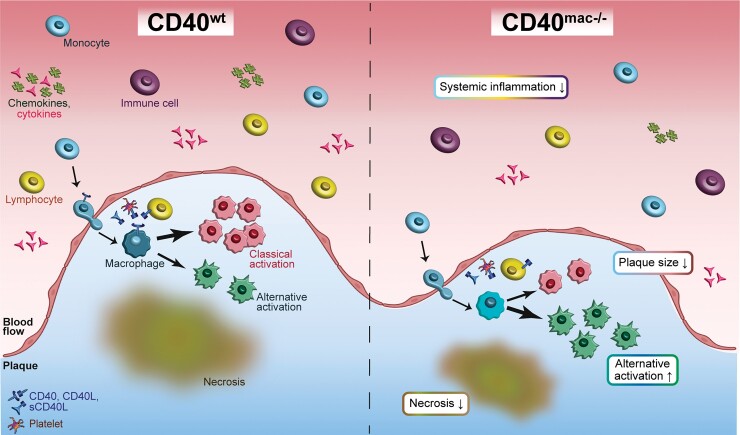Department of Medical Biochemistry, Amsterdam Cardiovascular Sciences (ACS) & Amsterdam
Infection and Immunity (AII), Amsterdam University Medical Centres, University of
Amsterdam , Amsterdam, The Netherlands
Department of Medical Biochemistry, Amsterdam Cardiovascular Sciences (ACS) & Amsterdam
Infection and Immunity (AII), Amsterdam University Medical Centres, University of
Amsterdam , Amsterdam, The Netherlands
Department of Medical Biochemistry, Amsterdam Cardiovascular Sciences (ACS) & Amsterdam
Infection and Immunity (AII), Amsterdam University Medical Centres, University of
Amsterdam , Amsterdam, The Netherlands
Department of Medical Biochemistry, Amsterdam Cardiovascular Sciences (ACS) & Amsterdam
Infection and Immunity (AII), Amsterdam University Medical Centres, University of
Amsterdam , Amsterdam, The Netherlands
Department of Medical Biochemistry, Amsterdam Cardiovascular Sciences (ACS) & Amsterdam
Infection and Immunity (AII), Amsterdam University Medical Centres, University of
Amsterdam , Amsterdam, The Netherlands
Department of Medical Biochemistry, Amsterdam Cardiovascular Sciences (ACS) & Amsterdam
Infection and Immunity (AII), Amsterdam University Medical Centres, University of
Amsterdam , Amsterdam, The Netherlands
Department of Medical Biochemistry, Amsterdam Cardiovascular Sciences (ACS) & Amsterdam
Infection and Immunity (AII), Amsterdam University Medical Centres, University of
Amsterdam , Amsterdam, The Netherlands
Department of Medical Biochemistry, Amsterdam Cardiovascular Sciences (ACS) & Amsterdam
Infection and Immunity (AII), Amsterdam University Medical Centres, University of
Amsterdam , Amsterdam, The Netherlands
Kennedy Institute of Rheumatology, Nuffield Department of Orthopaedics, Rheumatology
and Musculoskeletal Sciences, University of Oxford , Oxford, UK
Department of Vascular Medicine, Amsterdam Cardiovascular Sciences (ACS), Amsterdam
University Medical Centres, University of Amsterdam , Amsterdam, The Netherlands
Bioinformatics Laboratory, Department of Epidemiology and Data Science, Amsterdam
UMC, University of Amsterdam , Amsterdam, The Netherlands
Bioinformatics Laboratory, Department of Epidemiology and Data Science, Amsterdam
UMC, University of Amsterdam , Amsterdam, The Netherlands
Department of Molecular Cell Biology and Immunology, Amsterdam Cardiovascular Sciences,
Cancer Center Amsterdam, Amsterdam UMC, Vrije Universiteit Amsterdam , Amsterdam, Netherlands
Department of Medical Biochemistry, Amsterdam Cardiovascular Sciences (ACS) & Amsterdam
Infection and Immunity (AII), Amsterdam University Medical Centres, University of
Amsterdam , Amsterdam, The Netherlands
Department of Molecular Cell Biology and Immunology, Amsterdam Cardiovascular Sciences,
Cancer Center Amsterdam, Amsterdam UMC, Vrije Universiteit Amsterdam , Amsterdam, Netherlands
Department of Medical Biochemistry, Amsterdam Cardiovascular Sciences (ACS) & Amsterdam
Infection and Immunity (AII), Amsterdam University Medical Centres, University of
Amsterdam , Amsterdam, The Netherlands
Institute of Cardiovascular Prevention (IPEK), Ludwig Maximilian’s University , Munich, Germany
German Centre for Cardiovascular Research (DZHK), partner site Munich Heart Alliance , Munich, Germany
Department of Biochemistry, Cardiovascular Research Institute Maastricht (CARIM),
Maastricht University , Maastricht, the Netherlands
Munich Cluster for Systems Neurology (SyNergy) , Munich, Germany
Institute of Cardiovascular Prevention (IPEK), Ludwig Maximilian’s University , Munich, Germany
Munich Cluster for Systems Neurology (SyNergy) , Munich, Germany
Walter-Straub-Institute of Pharmacology and Toxicology, Ludwig-Maximilians Universität , München, Germany
Kennedy Institute of Rheumatology, Nuffield Department of Orthopaedics, Rheumatology
and Musculoskeletal Sciences, University of Oxford , Oxford, UK
Division of Cardiology, Pulmonology and Vascular Medicine, Medical Faculty, University
Hospital and Heinrich Heine University Düsseldorf , Germany
Department of Medical Biochemistry, Amsterdam Cardiovascular Sciences (ACS) & Amsterdam
Infection and Immunity (AII), Amsterdam University Medical Centres, University of
Amsterdam , Amsterdam, The Netherlands
Department of Clinical Sciences Malmö, Lund University, Clinical Research Center , Malmö, Sweden
Department of Medical Biochemistry, Amsterdam Cardiovascular Sciences (ACS) & Amsterdam
Infection and Immunity (AII), Amsterdam University Medical Centres, University of
Amsterdam , Amsterdam, The Netherlands
Institute of Cardiovascular Prevention (IPEK), Ludwig Maximilian’s University , Munich, Germany
German Centre for Cardiovascular Research (DZHK), partner site Munich Heart Alliance , Munich, Germany
Experimental Cardiovascular Immunology Laboratory, Department of Cardiovascular Medicine,
Mayo Clinic , Rochester, MN, USA
License:
This is an Open Access article distributed under the terms of the Creative Commons
Attribution-NonCommercial License (
https://creativecommons.org/licenses/by-nc/4.0/), which permits non-commercial re-use, distribution, and reproduction in any medium,
provided the original work is properly cited. For commercial re-use, please contact
journals.permissions@oup.com



